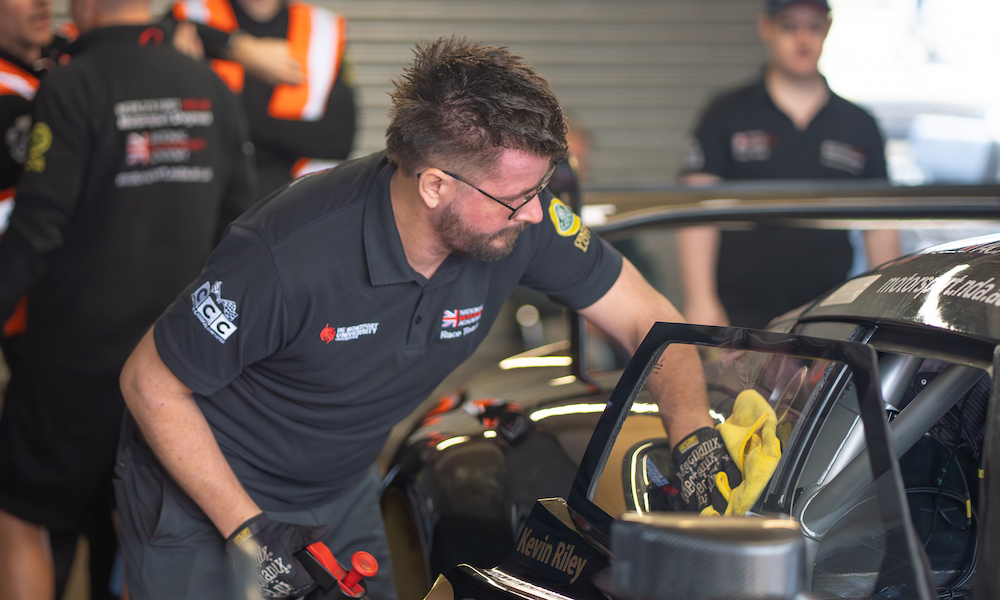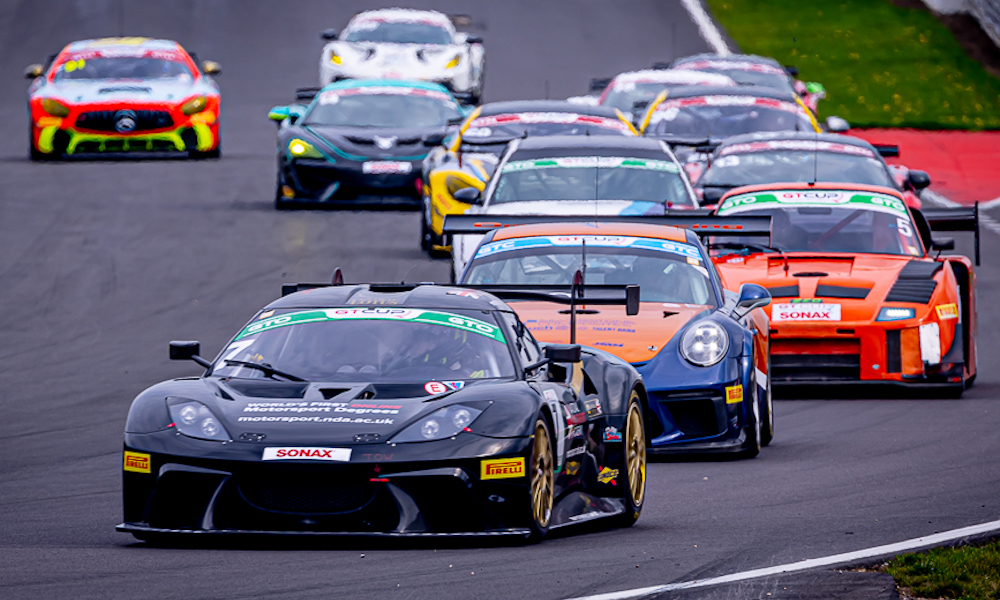The National Motorsport Academy is delighted to announce its participation in the 2024 GT Cup season, with some exciting ambitions planned for its self-funded team called Team NMA (#TeamNMA on Instagram).
The GT Cup stands as a cornerstone of UK motorsport, founded by Marc Haynes in 2007. In recent years, the series has evolved into a coveted championship, boasting a diverse array of GT cars on the grid. From cutting-edge GT3 models like Mercedes-AMGs and McLarens, to classic vehicles that competed in the 1990s and 2000s, its classes span GTO, GT3, GTH, GTC and more. This multi-class lineup consistently delivers excellent racing.
National Motorsport Academy founder Kevin Riley first joined the GT Cup in 2012, competing in a Mosler MT900R. He soon teamed up with Dr. Kieran Reeves who engineered the Mosler through the 2014 and 2015 seasons. Following its inception in 2015, the NMA first participated as the newly formed Team NMA in 2016 and has since raced with the Mosler MT900R and two variants of the Lotus Evora GTE, which is a former 24 Hours of Le Mans works car.
Unique team setup
One of the most unique aspects of Team NMA is the setup. The core of the squad comprises of three full time members: Dr. Kieran Reeves, architect of the world’s first online motorsport engineering degree and NMA director of motorsport; aerodynamic specialist and deputy director Wayne Gater, and race engineer/tutor Ed Sarling. Together, they balance their time developing, running, and tutoring on the course alongside continued research and development projects on the cars. The rest of the team is made up of NMA students who are either enrolled on the BSc (Hons) Motorsport Engineering or MSc Advanced Motorsport Engineering degrees.
Some readers will be familiar with how a race team operates, but how does a tutor-led student race team work?
At the start of the season, the NMA invites students to partake in race weekends across the GT Cup calendar. Participation in these events is entirely optional as it does not bear any influence on grades. However, students stand to gain invaluable hands-on experience by taking part.

Up to six students are placed on a race weekend, regardless of their experience level. Each student then gets the opportunity to apply all the skills they have acquired throughout their degrees. This enables them to draw from specific modules, such as Race Car Design & Preparation, Vehicle Dynamics & Data Acquisition, and Race Strategy…
Click Here to Read the Full Original Article at Racecar Engineering…

